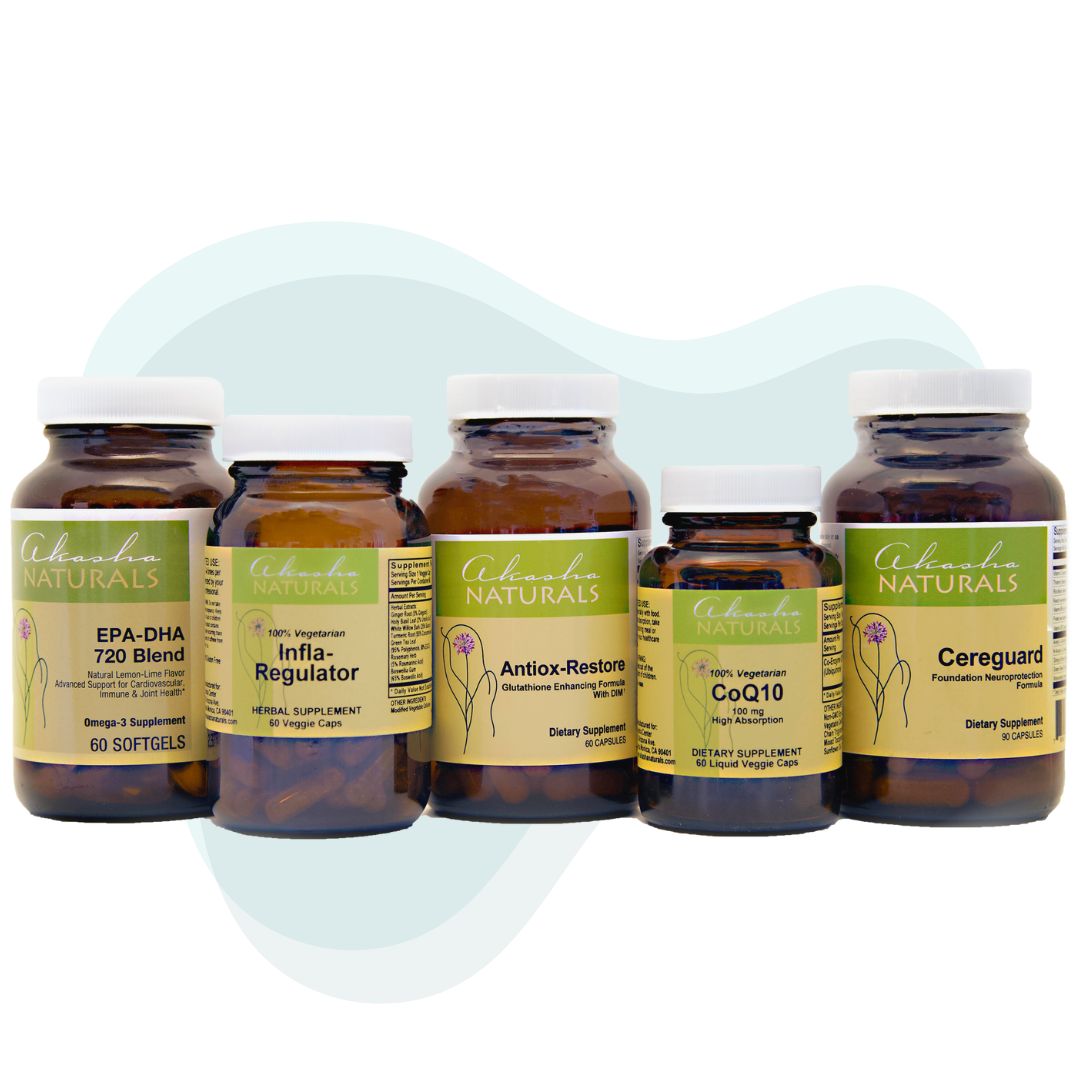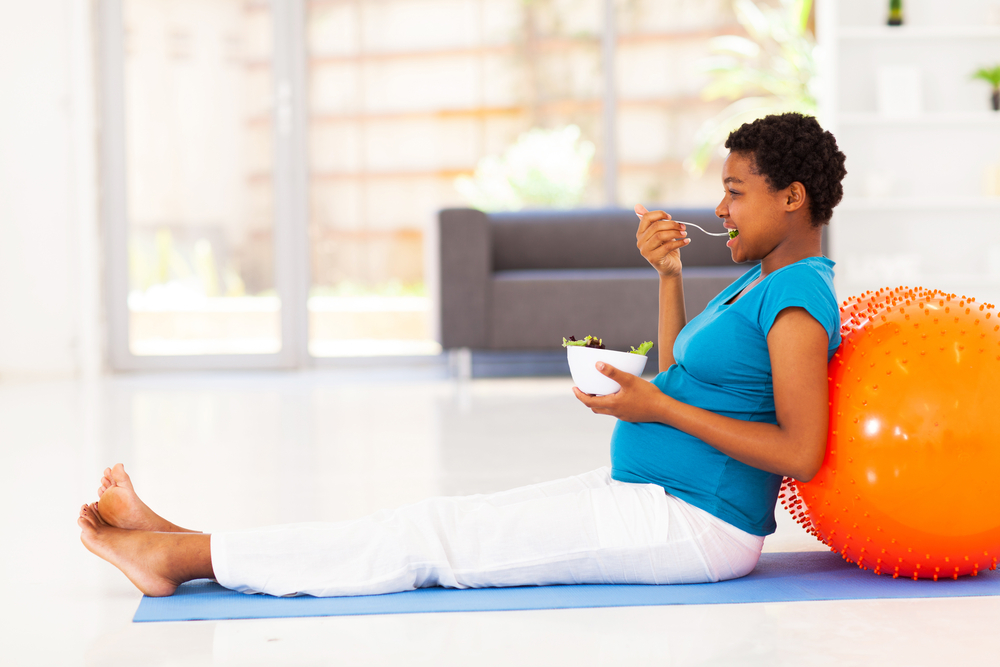Pregnancy is a magical time when women get to experience their day-to-day life while amazing changes are constantly happening within their body. I have three beautiful and healthy girls and loved being pregnant. I feel honored to help support women in my practice have healthy and joyful pregnancies. Being pregnant presents an exciting opportunity where women (and their partners) can feel extra motivated to take the very best care of their bodies. This is not a time to kick your feet up and eat donuts (since weight gain is supposed to happen) – this will just lead to more weight gain, metabolic imbalances, sleep disturbances and mood changes. Making smart choices about what we eat, how we move our body and how we manage stress has a tremendous impact on a women’s health and how she experiences pregnancy. The choices made during pregnancy also affect baby’s health and can even help influence how baby’s genes are expressed. I find this to be so exciting – our diet, supplements, and stress levels actually affects the health of our babies and their risk of developing certain diseases such as obesity, diabetes and cardiovascular disease.
Diet
- Eat a whole foods diet – this means eating real food while avoiding processed foods, refined sugar, dyes, trans fats and preservatives. In my practice, I see woman who eat real food but choose to be 100% plant based (vegan), some that choose a Paleo diet (no grains or legumes), and still others that follow a low FODMAP diet. You can have a healthy pregnancy following these ways of eating but it can be very helpful to work with someone familiar with these diets and pregnancy nutrient needs.
- Eat dark leafy green vegetables (raw, roasted, steamed, sauteed): kale, collards, arugula, spinach and swiss chard, for their fiber, antioxidants, vitamins, and minerals.
- Eat cruciferous vegetables: broccoli, cabbage, cauliflower, and brussel sprouts, for their vitamins, minerals, fiber and sulphur-containing compounds which help support phase 2 liver detoxification.
- Eat liver supportive foods: beets, artichokes, carrots, and burdock root, to support healthy elimination and gentle cleansing.
- Eat fermented foods, such as sauerkraut and kimchee, to get food sources of probiotics.
- Organic fruits, emphasizing low sugar fruits like blueberries, apples, and pears, for vitamins, minerals, fiber and antioxidants.
- Healthy fats: avocado, coconut, and flaxseed oil, for baby’s development.
- Nuts and seeds: pumpkin seeds, chia seeds, hemp seeds, flaxseeds, walnuts and almonds, for healthy fat, fiber, protein, and nutrients.
- Increase food sources of omega 3 fatty acids (you’ll find these recommendations in other categories but wanted to emphasize omega 3 for its help in baby’s brain development): wild salmon, sardines, flaxseeds, flaxseed oil, pumpkin seeds, chia seeds, hemp seeds, and hemp milk.
- Healthy sources of protein (if you eat animal protein): eggs, low mercury fish (wild salmon or sardines) no more than 2x/week, organic free range chicken or turkey, and grass fed beef.
- Beans and Legumes (lentils, garbanzo beans, black beans, adzuki beans, mung beans) for protein and fiber.
- Whole grains: quinoa, millet, and rice.
- If you crave sugar, eat protein or a healthy fat.
- Avoid high mercury fish (tuna, halibut, swordfish)
- No sushi, no sprouts, no deli meat
Exercise
- My favorite exercises during pregnancy are walking and yoga. During my 1st pregnancy 9-years ago, my midwife recommended walking 5-miles everyday – which I did and it felt amazing. I was not able to get daily 5-mile walks in with pregnancy number 2 or 3, but I walked whenever I could, for as long as I could.
- Yoga is an incredible way to build strength, open up your hips, and increase flexibility. It also helps calm the mind and connect you to your growing baby.
- Swimming is an excellent cardiovascular and weight-bearing exercise.
- Stationary bike, elliptical, and weights are also excellent forms of exercise during pregnancy.
- Avoid sports that could cause a crash or a fall that could injure you or your baby like rock climbing, horseback riding, skiing, and biking, unless you have a lot of experience and confidence in one of these areas.
Supplements
- Prenatal Vitamin: Not all prenatal vitamins are the same. Many prenatals have dyes and most have nutrients that are not in the most bioavailable form.
- Look for Folic Acid in the form of methyl folate and folinic acid. Straight Folic Acid needs to be converted into methylfolate to be useful in the body. 40%- 60% of people do not do this conversion efficiently (those MTHFR genetic mutations).
- B12 should also be in its most highly absorbable form of methyl B12.
- Iron as Ferrous Bisglycinate
- Calcium as Calcium Malate or Calcium Citrate
- Chelated Minerals for optimal absorption
- Vitamin A – both as beta carotene (which the body converts into vitamin A) and as its active form of retinyl palmitate (consume no more than 5000IU of retinyl palmitate during pregnancy)
- Vitamin D3 in the form of cholecalciferol. Total Vitamin D3 supplementation during pregnancy should be 2000IU but can be higher (5000IU) if a woman is deficient.
- Probiotics help support mom’s digestion and helps to support baby’s microbiome.
- Omega 3 Fatty Acid – ideally a high quality fish oil supplement with around 600mg DHA and 300mg EPA for optimal baby brain development.
- Possible additionals:
- Methylated B Complex – for those with compromised methylation status or those who experience a high a level of stress or do not eat dark leafy green veggies.
- Calcium and Magnesium
- Phosphatdylcholine
- Stress Reduction – be mindful of your stressors. Stress increases when a woman’s emotional and physical needs are not met during pregnancy. You do not necessarily need to slow down during pregnancy, but appreciate that stress can affect you and your baby. Do not over commit yourself. Include stress reducing activities like yoga, meditation, or journaling. We know stress reducing activities lower blood cortisol, balances blood sugar, enhances mood, and improves sleep. All of these things are wonderful for you and your growing baby.
- Sleep: do not sacrifice sleep to get things done – sleep is vital for baby and mom’s health.
- Joy: What brings you joy? Make sure you can answer this question, and do something that brings you joy everyday. It can be simple, like enjoying a cup of tea while reading a book.
- Connect with baby: We all have different ways to help us feel connected to our baby. I kept a journal for each of my girls during pregnancy and I loved taking a few moments when I got into bed every night to put my hand on my belly and talk to my baby.
Finally, I have seen patients who experience a high level of anxiety during pregnancy. They often exhibit a worrisome preoccupation with “messing” up their pregnancy and refuse to eat anything that is not organic or healthy. The stress and anxiety of doing “something wrong,” however, can do more harm to your body and your baby than enjoying a sugary treat. These recommendations are tools to help you make good decisions during pregnancy – that doesn’t mean you can’t still enjoy those little decadences from time to time. Hopefully, after reading this, you will feel empowered to make the best decisions you can (most of the time) for you and your baby; to enjoy this sacred, exciting time; and to trust your body completely.
–
Dr. Maggie Ney is a Naturopathic Doctor and Co-Director of the Women’s Clinic. You can make an appointment with her by calling us at 310-451-8880 or emailing us at info@akashacenter.com








